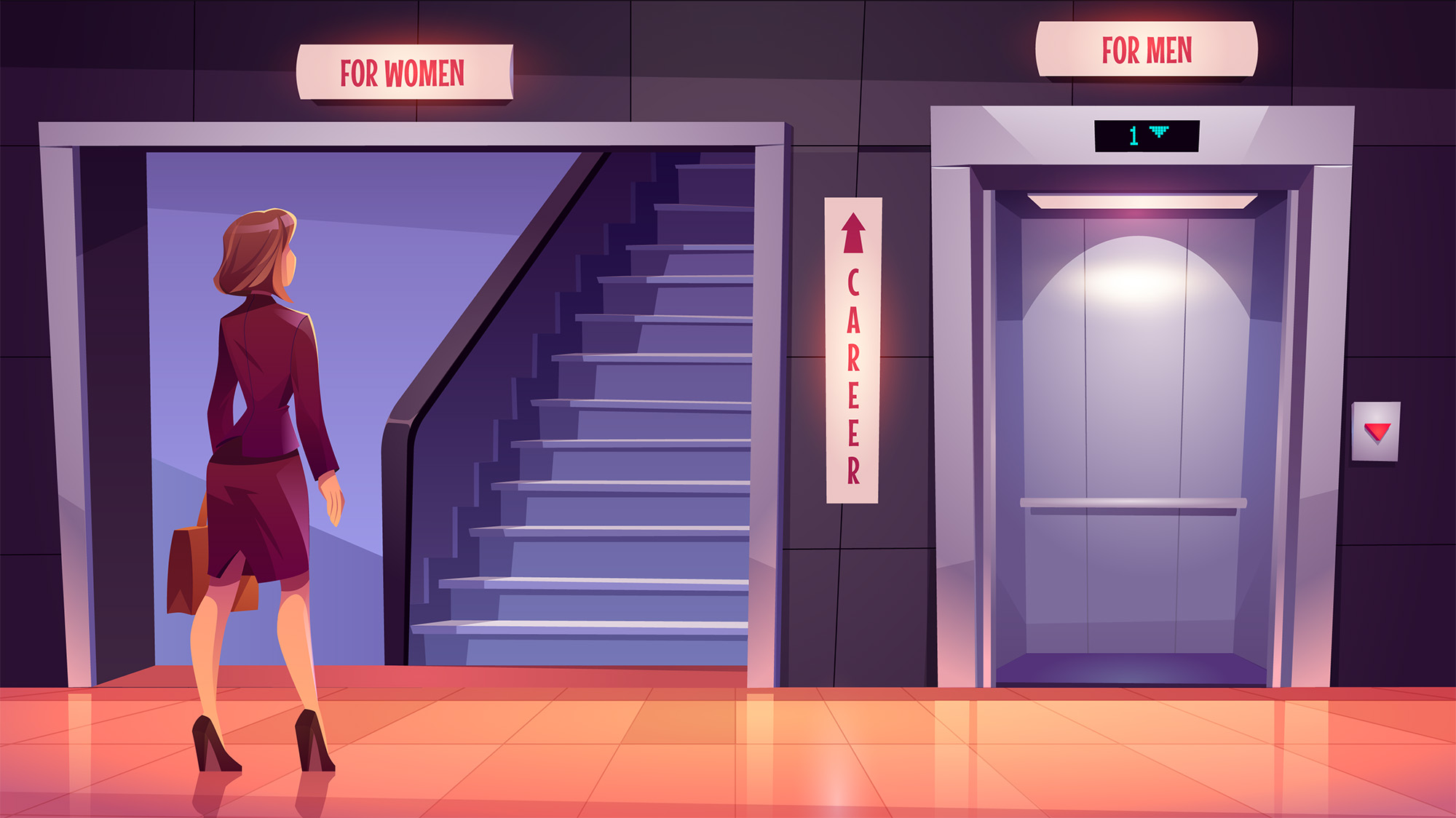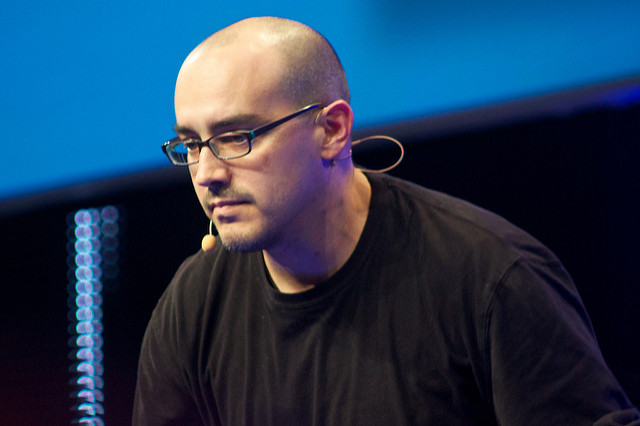Q&A: Sarah Lewin, Esri UK
How GIS gives women a route into the male-dominated tech sector


Sarah Lewin is head of pre-sales and technical research at Esri UK, a firm that specialises in geographic information systems (GIS) software and technology.
She took some time to speak to IT Pro during Women in Tech Month about her experiences working in the tech industry.
Tell me about yourself what's your background and what does your current role entail?
I came from a master's [degree] in GIS at Edinburgh University. I had an environmental slant through my A Levels and my bachelor's degree, so I understood how GIS might be able to help me in the field of the environment.
Straight out of my master's I got a job at Esri UK, where I worked in the technical support department for a little while, then moved into a professional services role and generally hopped around the company until moving in to manage the technical research team, which I now head-up, along with pre-sales.
For me, GIS software is a way of understanding geography and getting insights into spatial information. If you take pretty much any kind of data, the vast majority of it has got some sort of spacial context to it and GIS enables you to see those spacial relationships and actually get a lot more from your data.
The GIS workforce profile is almost a 50/50 split between men and women, which is in stark contrast to the majority of technological professions. Why do you think that is?
Sign up today and you will receive a free copy of our Future Focus 2025 report - the leading guidance on AI, cybersecurity and other IT challenges as per 700+ senior executives
As a business, we do have a lot of women coming through and actually we probably see more women when it comes to interviewing at the graduate level than we do men now, which is a total flip compared to where it was when I first started [in 2000].
I think the majority of this is because people don't necessarily get into GIS because they like computing, people get into GIS because they love geography, which isn't a subject that's necessarily dominated by men or women. GIS is an enabling technology for geography and as you get into the subject you realise you can use it to give you far more insight into the subject you're looking at than anything else can. So it's sort of a side effect, rather than you taking a direct route into an IT subject.
That's how I think this must be happening, because it's certainly not from the computing side of things from the gender balance point of view, that area is still quite shocking.
So when it comes to ways to get women into tech, is this idea of introducing specialist technologies into other disciplines, like GIS and geography, a way forward?
Yes, and I think it's already going that way. Going through university now, you have to know how to work on a computer and work various different packages these are tools that you have to be able to use now to get on in life. It stops it being so specialist and just becomes a means to an end.
But there's still a lot of software that would require a background in computing and therefore gender imbalance is going to continue to be a problem across other parts of the IT industry, where you do need highly technical people. With only 8.5% of women taking an A Level [in IT], even if you want to balance things out, you've got such a small pool of people to pick from.
There's an increasing number of initiatives to get women and girls into technology now, such as Girls Who Code. Do you think these efforts will help increase that talent pool?
I'd like to think it will change, but it's difficult. I read some research a while ago about the number of girls doing what are considered to be traditionally male' subjects, like engineering and maths, in single-sex girls' secondary schools vs mixed sex schools. One of the things that frequently came up was that girls in single-sex schools are far more likely to take these subjects, so there must be pressure at that early age in a mixed environment to take a more traditionally 'female' route.
I imagine, though, that if girls are introduced to these subjects earlier and it's made a lot clearer that, actually, this isn't a male thing that women are capable of doing it too and do take up these roles it could make a difference.
But you have to overtly put forward these options. It has to be obvious, because it has to counteract the things you pick up by osmosis, the stuff that isn't in your face, but which is there in books and TV. It's in the little things that, when you start looking for them, become so obvious. Trying to find a film for my kids to watch where women are the heroes of it, rather than the woman who gets saved and gets married off, for example, is tricky. While there's more of this kind of media coming through, these stereotypes still dominate.

Jane McCallion is Managing Editor of ITPro and ChannelPro, specializing in data centers, enterprise IT infrastructure, and cybersecurity. Before becoming Managing Editor, she held the role of Deputy Editor and, prior to that, Features Editor, managing a pool of freelance and internal writers, while continuing to specialize in enterprise IT infrastructure, and business strategy.
Prior to joining ITPro, Jane was a freelance business journalist writing as both Jane McCallion and Jane Bordenave for titles such as European CEO, World Finance, and Business Excellence Magazine.
-
 Microsoft unveils Maia 200 accelerator, claiming better performance per dollar than Amazon and Google
Microsoft unveils Maia 200 accelerator, claiming better performance per dollar than Amazon and GoogleNews The launch of Microsoft’s second-generation silicon solidifies its mission to scale AI workloads and directly control more of its infrastructure
-
 Infosys expands Swiss footprint with new Zurich office
Infosys expands Swiss footprint with new Zurich officeNews The firm has relocated its Swiss headquarters to support partners delivering AI-led digital transformation
-
 International Women’s Day: Where now for women in tech?
International Women’s Day: Where now for women in tech?Opinion Women have a long history of making strides in technology, yet recognition – and fair treatment – remain elusive
-
 Awards celebrate 2017's women in tech
Awards celebrate 2017's women in techNews Software engineers, developers, security experts, students and lecturers were all recognised for their achievements
-
 TechWomen50 Awards releases 100-strong shortlist
TechWomen50 Awards releases 100-strong shortlistNews Women in tech shortlist recognises the achievements of techies across Britain
-
 500 Canada 'to kill startup fund after US founder's sexism scandal'
500 Canada 'to kill startup fund after US founder's sexism scandal'News The startup fund's potential investors didn't want Dave McClure involved at all - report
-
 Startup launches campaign to place 1,000 women in tech by 2020
Startup launches campaign to place 1,000 women in tech by 2020News Structur3dpeople's initiative will help build up the skills of women in tech
-
 Why are women such a problem?
Why are women such a problem?Opinion We’ve reached the end of our spotlight on women in tech month, but why are we even having to talk about this stuff?
-
 Fujitsu workers stage 48-hour strike over gender pay gap
Fujitsu workers stage 48-hour strike over gender pay gapNews 300 Fujitsu employees go on strike in Manchester to protest against jobs, pensions and pay
-
 What does 2016 look like for UK women in tech?
What does 2016 look like for UK women in tech?In-depth Programmes and initiatives abound, but there is more fundamental change needed